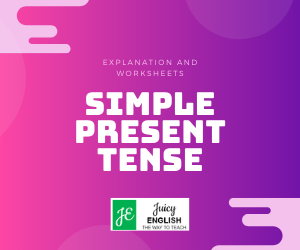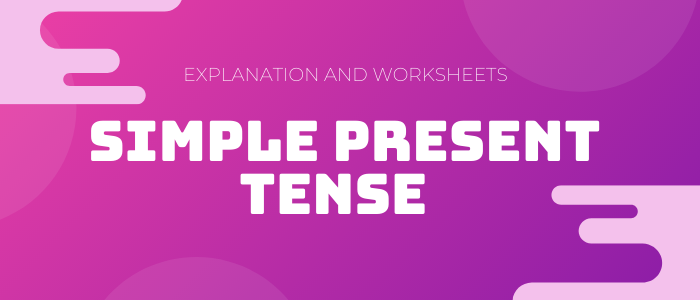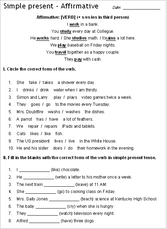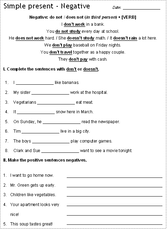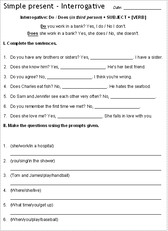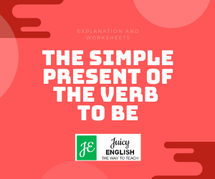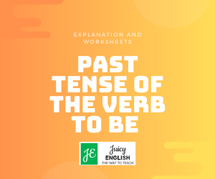The simple present tense is used:
- To describe repeated or regular actions/habits ( I work in a bank ).
- To state general truths or facts (Water boils at 100°C).
- To describe future facts or actions set by a timetable (The train leaves at 7 am).
- To express opinions, states, feelings, possession or things that happen inside our heads (I want that red dress, I love you, etc.).
Examples:
- I work in a bank.
- You get up early every day.
- She works in a bank.
- She studies at university.
- He goes to the movies every Wednesday.
- It rains every afternoon in summer.
- We play baseball on Friday nights.
- You travel together as a happy couple.
- They pay with cash.
Negative: do not / does not (in third person) + [VERB]
Examples:
- I do not speak Portuguese.
- She does not speak Portuguese.
- You don’t like apples.
- He doesn’t like apples.
- do not = don’t
- does not = doesn’t
Interrogative: Do / Does (in third person) + SUBJECT + [VERB]
Examples:
- Do you work in a bank? Yes, I do / No I don’t.
- Does she work in a bank? Yes, she does / No, she doesn’t.
You can add a question word (why, where, when, how long, who, how, etc.) before do or does to ask for more information.
Examples:
- What do you do?
- Where does he work?
- When does she do her homework?
- How long do tigers live?
- Who do you think you are?
- How do we hear?
In the third person singular (he, she & it) the most of the verbs always end in -s.
Examples:
- he likes, she cooks, it costs.
There are 3 irregular verbs form:
- have = has
- go = goes
- do = does
- pay - pays
- play – plays
- say – says
- deny - denies
- marry = marries
- study = studies
- miss = misses
- buzz = buzzes
- wash = washes
- watch = watches
- teach = teaches
